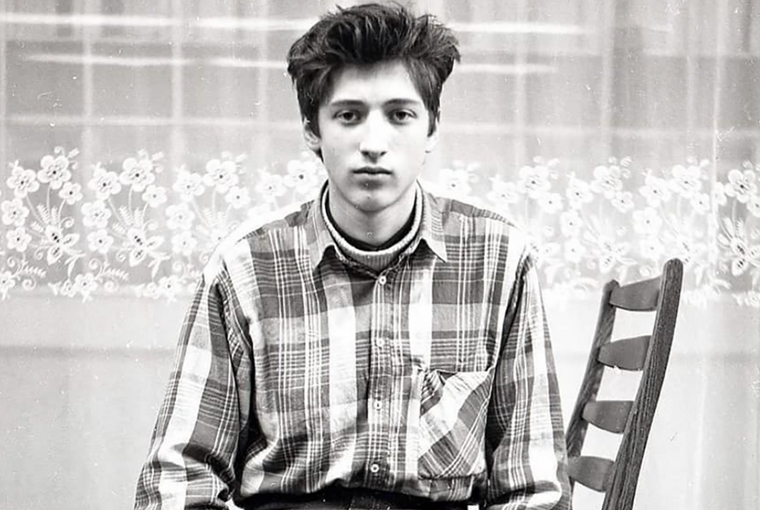Music is the Weapon
Nate Pommer and Eric Weinrib’s Scream of My Blood: A Gogol Bordello Story (2023)
Vol. 138 (October 2023) by Colette de Castro
On the 6th of July 2023, the crew of the documentary Scream of My Blood: A Gogol Bordello Story came onto the main stage at the Karlovy Vary Film Festival. The screening was taking place in the Great Hall – a plush conference room in the Hotel Thermal, which serves as the main cinema during the festival. The thousand-seat hall was almost full. First to come onstage was the American producer Beverly Chase, closely followed by editors Chris Iversen and Paula Salhany. One of the film’s two directors, Eric Weinrib, was welcomed with a cheer. Eric was followed by his co-director Nate Pommer – his face set in a boyish beam.
But when Eugene Hütz, lead singer and founder of Gogol Bordello, walked onto the stage, no one was looking at anyone else anymore. It wasn’t his clothes: he was dressed in baggy brown cargo pants and a blue shirt. It wasn’t his hair: long and graying and with a big beard. It was something different altogether. His swagger, the slight tip of his head, the casual fling of his arm around Eric, they all contributed to our desire to see more of him, his charisma magnetic. Like he owned not only the stage, but perhaps the whole damn town.
It’s unusual for American productions to grace the screens of Karlovy Vary, let alone for the whole crew to turn up. They were warmly welcomed by the team at the festival and head programmer Karel Och himself introduced the film.
The film portrays Hütz’s life as an American immigrant story, glorifying immigration as perhaps the ultimate American way of life – from Hütz’s youth in the suburbs of Kyiv, gaining refugee status with his family, traveling across Europe, and finally landing in the USA in his teens.
Scream of my Blood is a film that exemplifies American soft power, subtly showing support for the Ukrainian cause while focusing on a musician whose very existence depended on immigration. No division of loyalty is apparent between his beloved Ukraine and the North American system which enabled his success.
A spirit of dissidence was always present in the singer’s family: his own father was in a rock band and teachers at his Kyiv schools were wary of his rebellious spirit. The final straw was when the family learned via BBC radio of the meltdown at nearby Chernobyl. Setting off to a complete unknown, he carried with him his love of punk music. Once he arrived in America, he approached a group of young people of his age and when he said “Sex” and they replied “Pistols”, he knew he had found his people.
Hütz formed Gogol Bordello on the Lower East Side of Manhattan in 1999. Over the years, the names and numbers of the numerous, multicultural musicians have altered, but Hütz has remained the leading man. He’s proudly theatrical, swigging a bottle of red wine onstage and occasionally dousing the audience. Often the lyrics are in a mixture of English and Ukrainian. Since the beginning of the Russian war on Ukraine, he has been tirelessly working to bring global attention to the situation, both by writing songs and traveling back to perform in his home country.
The camera follows Hütz as he decides to take a hiatus in Brazil, where he learned meditation and Tai Chi, picking up some new musical instruments and band members on the way. And just as the film threatens to go down that worn rock-documentary path where the musician crashes and burns then goes into rehab, it quickly picks up, and we see how the band’s leader used his newly learned skills to produce music channeled in a more political direction. When he meets Iggy Pop (who is now 76 and has an active performing career), they laugh together about slowing down and finding healthier ways to keep up the energy to perform.
After the documentary screening, the audience was treated to a live performance from Hütz himself. It was an extraordinary concert. Hütz, alone on the stage, was a fireball. The more energy he gave us the more we gave him back, and this feedback grew until almost everyone was on their feet and dancing. This was not unexpected, as the documentary is fizzing with energy and joie de vivre, the reality of war momentarily subsumed by the music.




Leave a Comment